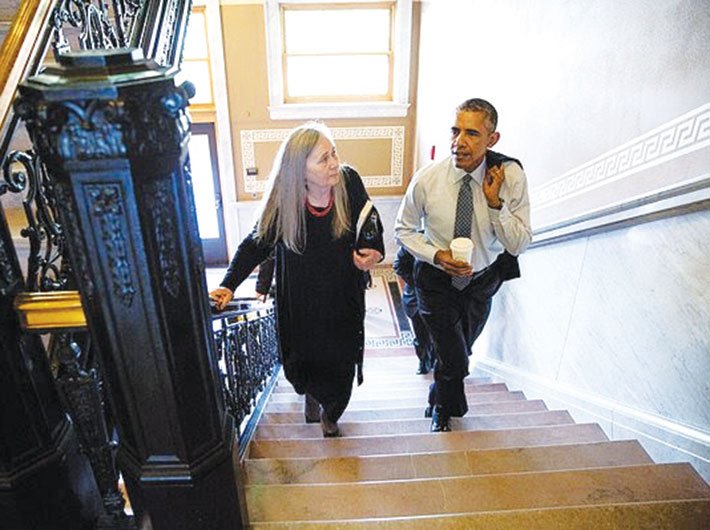The Uncommon Reader, a little gem of a novella by British author Alan Bennett, imagines Queen Elizabeth II falling in love with literature, to the extent that she starts ignoring her duties to complete one novel after another. She discovers, along with literary delights, that the world of books is an egalitarian place, all readers are equal there. But some readers are, well, more equal than others. For example, Barack Obama. The former law professor is a literature buff, and like any avid reader, once he likes a book he likes to tell as many people as possible that ‘you must read this’.
When he read the 2004 novel by Marilynne Robinson, Gilead, which won the Pulitzer the next year, he liked it so much that he wrote about it on his Facebook page. Gilead is of course a contemporary classic. Critics called it “serenely beautiful” and a “spiritual journey no reader will want to miss” and “a book to be savoured”. It’s as much about an individual’s spiritual quest as about the nation’s political quest – namely, the racial justice in the US.
Obama not only savoured the book and followed the author’s other works, especially her essays, in September he turned to Robinson for a long “conversation”, “about some of the broader cultural forces that shape our democracy and shape our ideas, and shape how we feel about citizenship and the direction that the country should be going in”. [You can read the conversation on the New York Review of Books’ website.]
It is a bit unusual albeit praiseworthy thing – the president of the US turning to a prominent literary figure to discuss broader ideas that consciously or otherwise inform our politics of the front-page variety. What the author said is of course universal and has relevance beyond the US.
For example, Obama referred to one of Robinson’s recent essays, on the timely topic of fear, and asked her why an author should be writing about the theme of fear. This is what she said:
“You have to assume that basically people want to do the right thing. I think that you can look around society and see that basically people do the right thing. But when people begin to make these conspiracy theories and so on, that make it seem as if what is apparently good is in fact sinister, they never accept the argument that is made for a position that they don’t agree with—you know? … Because [of] the idea of the ‘sinister other’. And I mean, that’s bad under all circumstances. But when it’s brought home, when it becomes part of our own political conversation about ourselves, I think that that really is about as dangerous a development as there could be in terms of whether we continue to be a democracy.”
If the paragraph is a bit dense to read, let us highlight the crucial term here, ‘the sinister other’, and paraphrase an invaluable advice: when a majority community starts to target a minority community by labeling it as ‘the sinister other’, the very project of democracy comes under doubt. And if the shenanigans of the ruling party are the ones who do this hate-mongering, then democracy is as good as over.
This is the advice from a writer who is from the majority community of her nation and whose novels are suffused with the majority religion of her nation. This is the advice the president of the US sought out.
It was a dialogue, not a monologue full of platitudes. There were no tweets ridiculing Robinson, and accusing her of doing politics, as if doing politics over principles were the dirtiest thing imaginable.
ashishm@governancenow.com
(The article appears as opening comment in the November 1-15, 2015 issue)

